Good one 👌
Thanks 😊
4 Reasons Kids Start Lying—And How to Stop It Before It Becomes a Habit
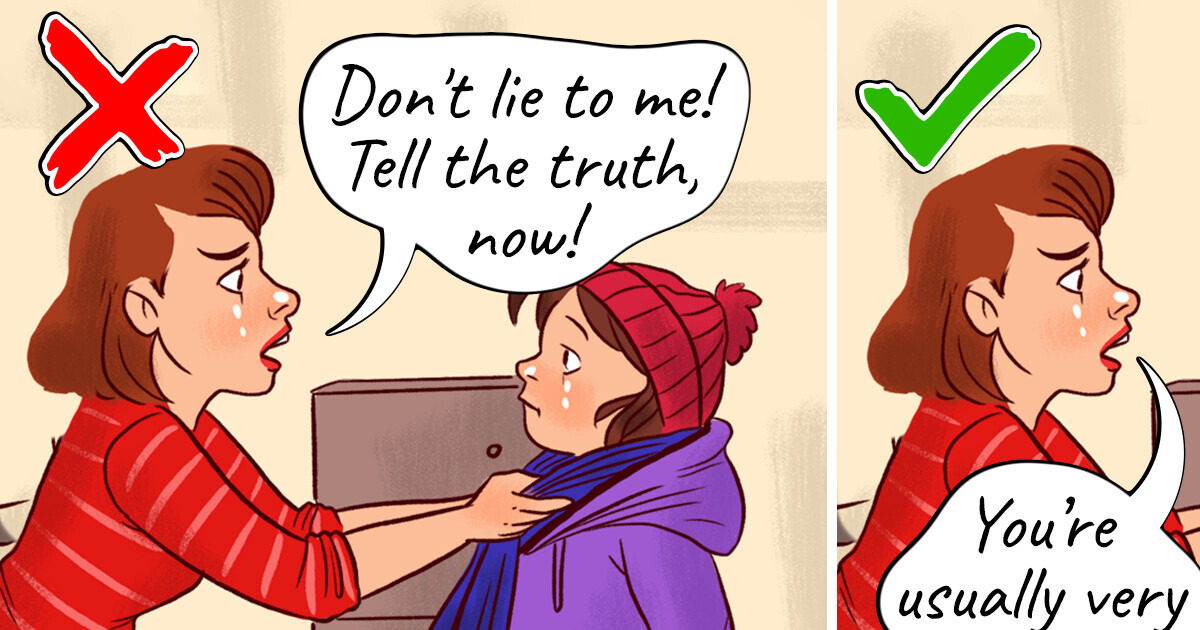
No sane parent wants to raise a liar, but sometimes, unintentionally, this happens. But don't despair, because there is hope. Based on the different research done by different medical publications and institutions, we at Bright Side put together this article that delves into 4 main reasons children can lie, what that lie reveals about their mental, emotional, or cultural state, and the different strategies that can be implemented by parents to dissuade a child's lies from becoming a habit.
1. To boost self-esteem and gain recognition.
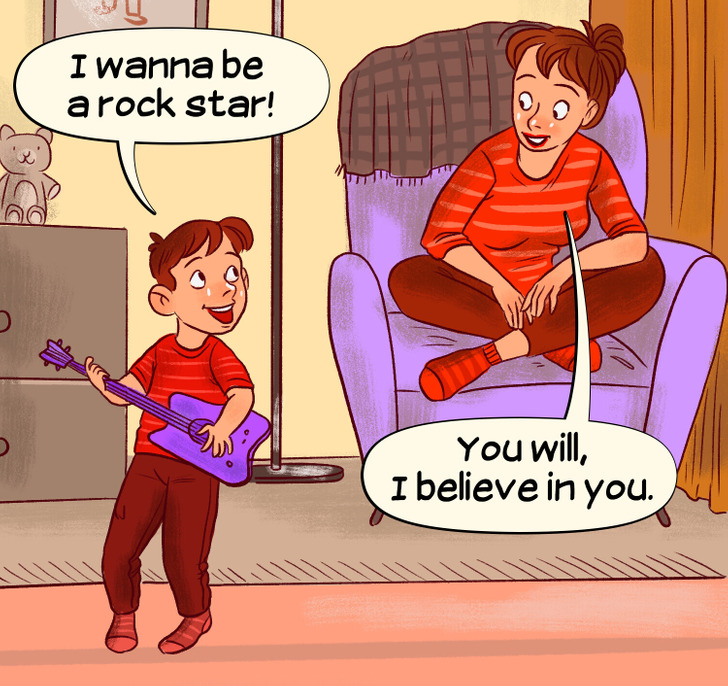
This lying is done in a strategic way and often comes from children who are insecure and lack confidence. It can look like an exaggerated experience whereby they add color to a situation that occurred to make it more exciting, to get attention, or to make themselves look better.
While the lying in itself is wrong, the act of producing that lie takes cognitive skills and reveals the child's creativity as well as their ability to strategize. But this bad habit can lead to behavioral issues whereby they associate praise with the need to pretend and be someone else.
- Child psychologists advise parents to either ignore the lying statement altogether or to focus on the part of the statement that is true. Some psychologists classify this type of lying as tall tales and that for children under the age of four years old, parents should make it clear that they know that the story is exaggerated but respond in a way that applauds the use of their children's imagination, without praising them for lying.
2. To take the focus off of themselves.
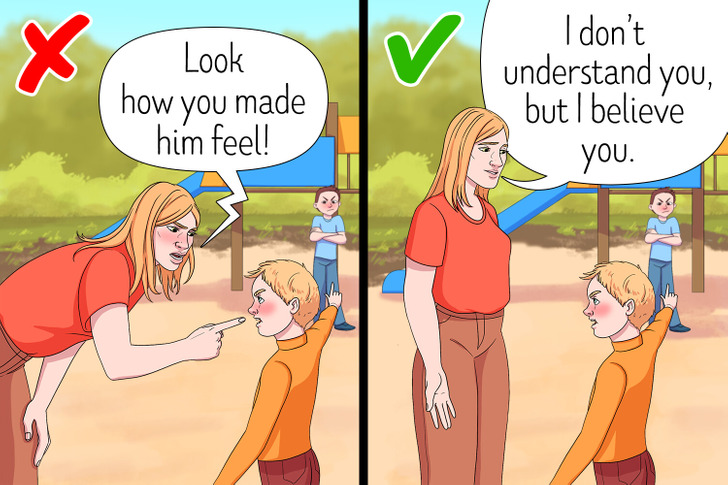
As children grow up, they become aware of the people around them and the positions of value that said people occupy in their lives. Usually, children with anxiety or depression may tell a lie, so as to not worry the next person or hurt their feelings. These types of lies can range from white lies, which psychologists believe help develop social skills, or they could be big lies such as lying about being bullied, so as not to get the perpetrator in trouble.
A child's ability to lie in this manner showcases a strong, yet misdirected problem-solving ability. But this type of lying can also lead to children who are altruistic in their personality.
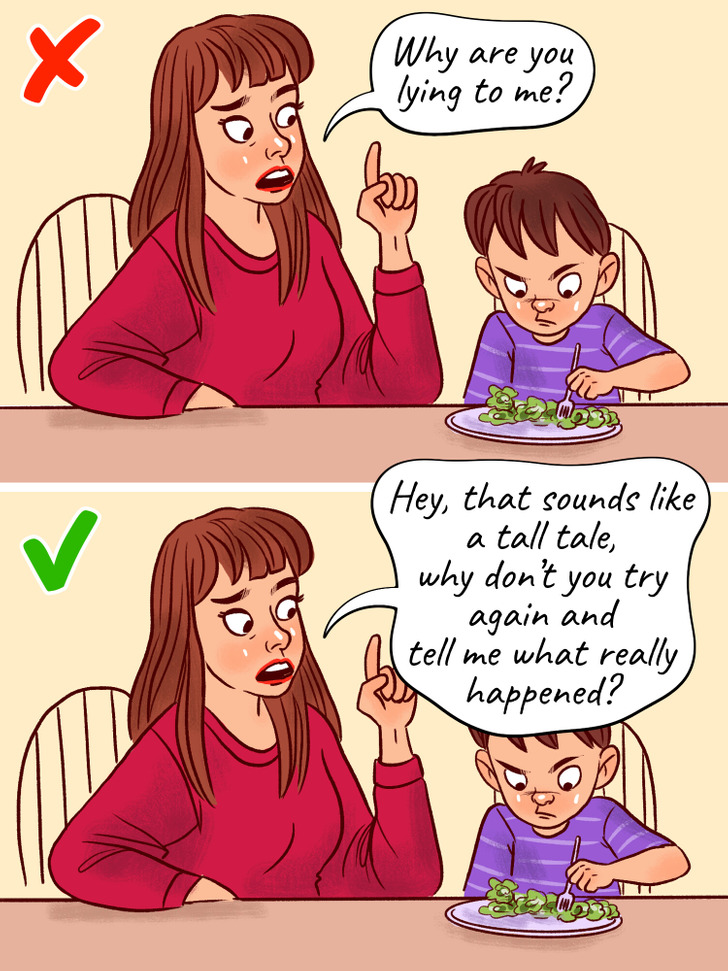
Cultural customs have been known to influence a child's truth or lie-telling, for this particular reason. Psychologists found that children from non-Western cultures, were more inclined to tell a lie, if it helped a community, compared to Western cultures, who were more inclined to lie if it helped an individual.
- Parents can acknowledge the lie and gently encourage the child to tell the truth by giving them an opportunity to do so, as they consider the consequences of their actions.
- If the lie is serious, lead your child into telling you the truth by reminding them that you are a safe space and by letting them know that you are capable and willing to protect them and take care of them.
3. Impulse.
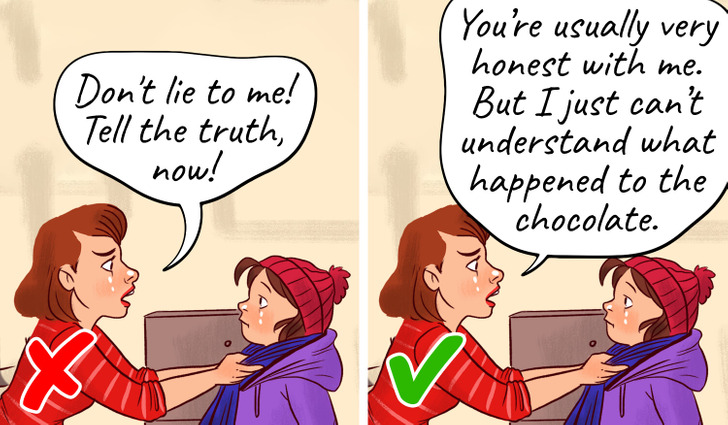
Lying can become an instinctive reaction in a child when they speak without thinking, and it can be a sign of ADHD or forgetfulness. Children often mirror the behaviors of adults and if they catch parents or guardians in a position whereby they know an adult is lying, they might believe that it is okay for them themselves to do it as well.
- Parents need to make it clear to their children that lying is not okay and that there are consequences for lying.
- They also need to give their children time to change their minds, so that if they answered abruptly the first time they spoke, they can get another chance to clearly think about whether or not they want to stay with the lie or go with the truth.
- Parents could also lead by example by presenting their children with moments when they had the opportunity to tell a lie but decided against it, or when they did tell a lie, but fixed the situation by telling the truth.
- Calling children liars, is not a viable solution. This is more likely to break down their self-esteem and actually instate a pattern of lying, instead of diffusing one.
4. To manipulate a situation to their benefit.
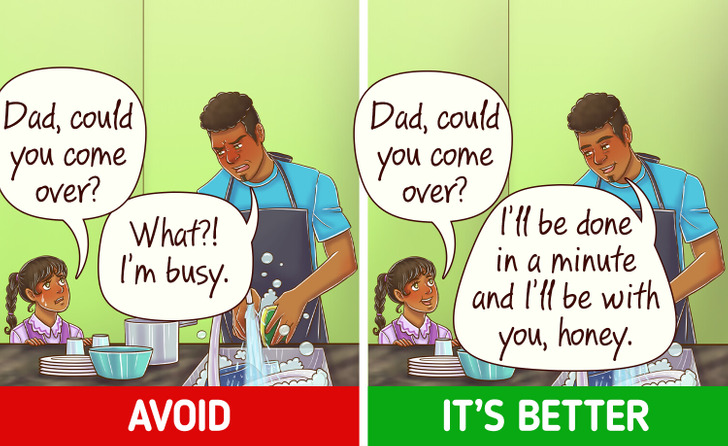
Whether that's to get out of a bad situation or to get access to something they desire, children may tell a lie. It could range from lying about having done their homework so they can watch TV, to lying about having hurt their sibling, so as not to have to deal with the consequences of their actions.
Studies also show that children lie more between the ages of 4–6 years old and fear of consequences is the most common reason that they are prone to lying. As they grow up, they get better at telling lies by fitting their tone of voice, facial expressions, and body language to back up the lie.
- Parents should give appropriate consequences for the lie. They can take their children's toys, phones, or outdoor activities away - depending on their age and interests - but also lessen the punishment if a child confesses to telling a lie.
- Make it simpler for your child not to tell lies. Consider why your child could be lying. For example, if your child is lying to get what they want, consider implementing a rewards system that allows them to earn the items instead.
- Teach children the moral implications of big lies. Allow them to see how you got caught in that lie and evaluate how they might be perceived because of that lie.
It is advised that if you think your child has a lying problem, then get professional, psychological help for them. Being attentive to children's speech, early on, can help to impede a lying problem in our kids. Check out this article to find out how lying can actually build a relationship.
Comments
Related Reads
15 Stories About Our Favorite Celebs That Show How Stars Are Made, Not Born

15 Stories That Show Kindness Is a Quiet Language the World Needs
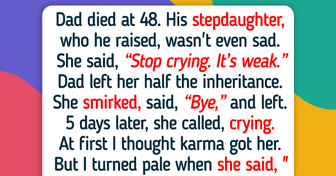
My Family Excluded My Girlfriend From Christmas Because We’re Not Married

I Became a Free Nanny After My Sister’s Divorce, Then She Crossed a Line

14 Stories That Prove Kindness Doesn’t Need a Spotlight to Shine

10 Hospital Workers Who Prove Kind Heart Is a Powerful Medicine

My Parents Refused to Fund My Education, So I Turned the Tables on Them

10 Dating Stories That Started Like Rom-Coms but Ended Like Horror Movies

I Refuse to Give Up the Passenger Seat for My MIL—She Should Learn Her Place

My MIL Humiliated Me in Front of Family, So I Exposed Her Secret
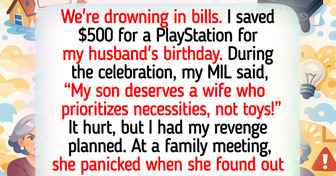
I Refuse to Accept Being “Grandfathered In” at $15K Less Than New Hires

12 Stories That Capture the Sweet and Sour Memories of Blended Families
